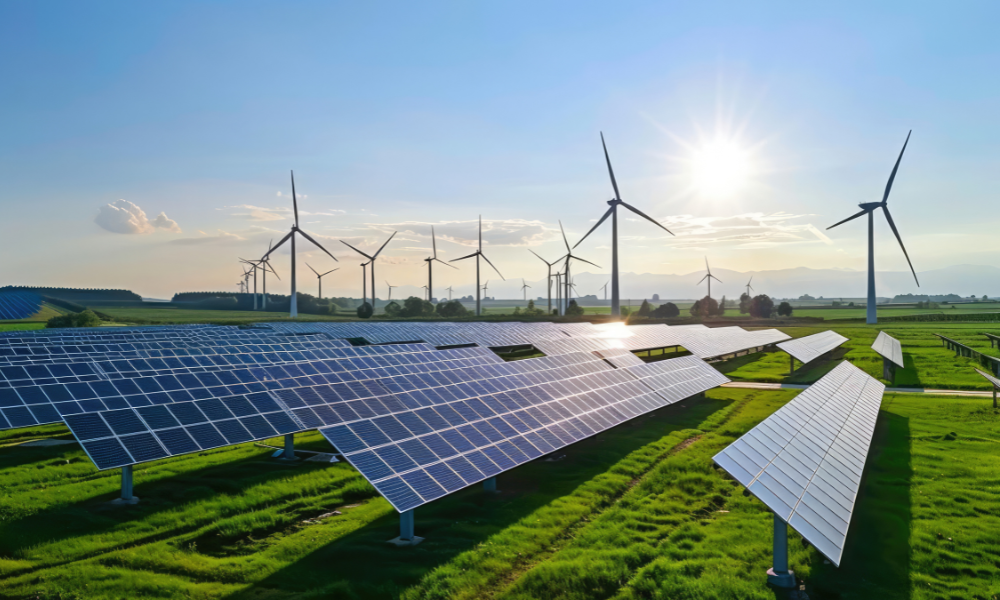With US tariffs looming, TC Energy prioritizes LNG expansion while leaving Canadian pipeline plans uncertain

TC Energy Corp. is intensifying its focus on US investments while remaining cautious about new Canadian pipeline ventures, as reported by Financial Post.
Chief Executive François Poirier emphasized this strategic direction during a recent earnings call, highlighting the company's pursuit of higher returns in the US market.
“Right now, we see the highest risk-adjusted returns being in the United States,” Poirier stated. “The vast majority of our discretionary capital is going, and we expect that it will continue to go, into the United States.”
The company's US-centric approach comes as President Donald Trump announced a 10 percent tariff on Canadian energy imports, effective February 4.
This policy shift has reignited discussions about Canada's energy export infrastructure, including the potential revival of TC Energy's Energy East project.
However, TC Energy noted that since the project's initial proposal, circumstances have evolved. The Canadian Mainline pipeline, once considered for crude oil transport under Energy East, is now fully contracted for natural gas.
One segment, Line 2, remains offline but could be reactivated depending on market conditions.
Additionally, in October 2024, TC Energy completed the spinoff of its oil pipeline assets into a new entity, South Bow Corp., to concentrate on natural gas and energy solutions.
Poirier addressed inquiries about a national energy corridor, stating, “With respect to what I would call an 'energy corridor' from coast to coast to coast—lots of inquiries on the liquid side—I would refer those to our friends and former colleagues at South Bow.”
While cautious about new oil pipeline projects in Canada, TC Energy is optimistic about liquefied natural gas (LNG) opportunities.
Poirier expressed confidence that LNG Canada's expansion could be approved this year, necessitating additional compressor stations to boost capacity on the Coastal GasLink pipeline.
“There is absolutely demand for more LNG export and market opportunity for us to prosecute,” Poirier said. “We're very bullish about the prospects for CGL phase two happening.”
In the fourth quarter of 2024, TC Energy reported a profit of $1.1bn, or $1.05 per share, surpassing analyst expectations.
While earnings from Canadian and US natural gas pipelines declined year-over-year, gains in the company's power business and Mexican natural gas operations offset these decreases.
The weakening Mexican peso contributed to these gains, as revenues are denominated in US dollars.
According to Financial Post, the company also announced the mechanical completion of its Southeast Gateway pipeline project in Mexico.
The 715-kilometre offshore natural gas pipeline was completed 13 percent under budget and is slated to begin operations on May 1.
Regarding potential impacts of US tariffs, Poirier reassured investors that TC Energy's diversified portfolio offers resilience.
“We recognize that prolonged tariffs could impact capital allocation decisions; however, our diverse portfolio across three jurisdictions enables us to continue allocating capital to markets with sustained energy demand,” he said.
Poirier added that most discretionary capital will be directed toward projects transporting US production to domestic demand centers, thereby avoiding tariff-related challenges.
The broader Canadian energy sector is also responding to these developments.
Enbridge Inc., for instance, reported a rise in fourth-quarter profits, driven by higher tolls and strengthened utility operations following acquisitions.
The company stated that potential US tariffs on Canadian energy imports are not expected to significantly impact its financial outlook, as reported by Reuters.
Similarly, Suncor Energy's CEO, Rich Kruger, highlighted the company's resilience against potential US tariffs, noting that a significant portion of its production is refined domestically or exported via alternative routes, such as the Trans Mountain pipeline to Asia, according to Reuters.



